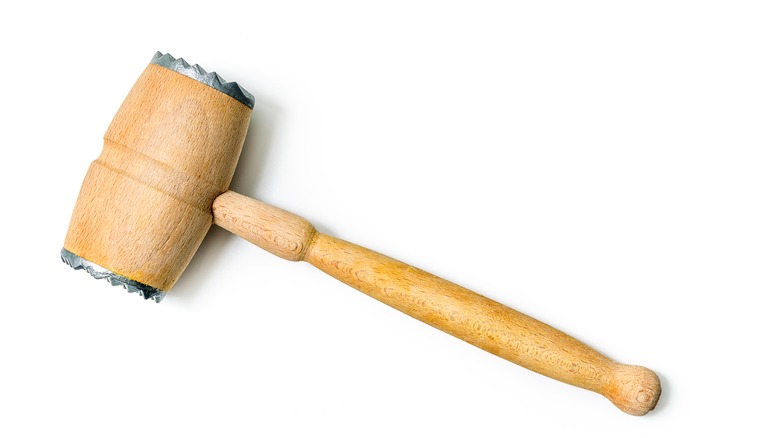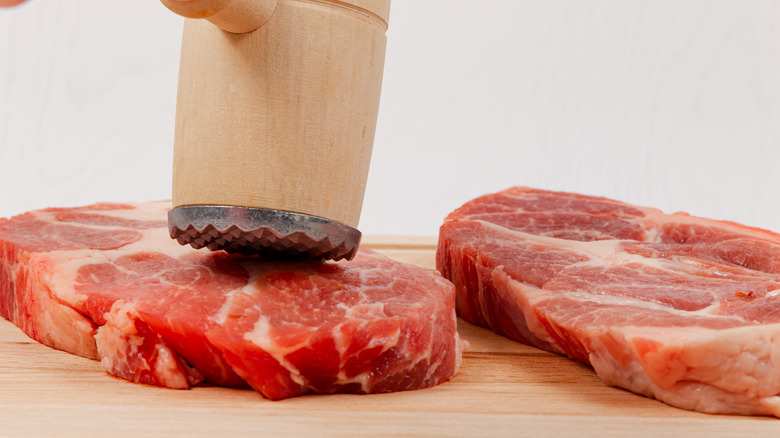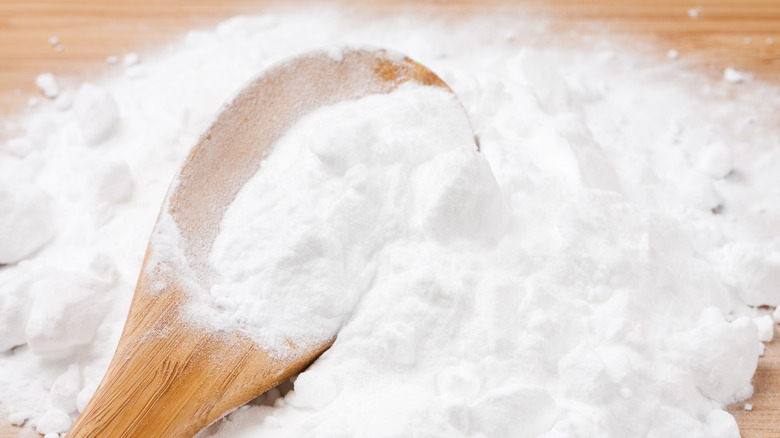How To Clean A Wooden Meat Mallet And Keep It Free From Bacteria
Modern kitchens are full of wondrous gadgets that would make our ancestors weep, marvels of technology that exist to perform cooking feats of which we otherwise could not dream. Also, they often include a big wooden mallet that you use to smash honks of meat. Sometimes, the oldest technology is still the best technology.
Meat mallets have one purpose: Flattening and tenderizing meat. And though they come in both wooden and metal varieties, wooden ones are the older form of the device and still work perfectly well. But while you can often just put some metal ones in the dishwasher, you can't do the same with wooden mallets, so how do you clean the things? The process isn't all that onerous, but it does require some care and a little bit of elbow grease. In particular, with anything beyond a basic rinse, you're going to be relying on the home kitchen's best cleaning friend: baking soda.
A simple hand scrub and dry will take care of most issues
The basics are as simple as you'd expect: Hand wash your wooden utensils, including meat mallets, immediately after use, using mild dish detergent and a soft sponge. You definitely don't want to soak them; excess time in water can cause wooden utensils to warp, splinter, and crack. These cracks aren't just unsightly and damaging; they can become breeding grounds for bacteria, so you shouldn't boil your wooden utensils. When your meat mallet starts to crack, it's time to throw it away and get a new one.
The same potential cracking problem is why you should never let your meat mallet (or any wooden utensil) air dry. Leftover moisture can seep in and cause the same splitting and cracking effect as if they'd been submerged in the sink. Instead, make sure to dry them by hand. If your mallet still has gross odors or stains, that's the point at which you bring in the big guns: Baking soda and lemon.
Baking soda and lemon will knock out the tough stains
The holy trinity of non-toxic kitchen cleaning materials are vinegar, baking soda, and lemon — sometimes used in conjunction with one another. In particular, baking soda is the one that shows up the most; it can be used to clean everything from tupperware and Pyrex dishes to brass pans and oven knobs. When it comes to cleaning a wooden meat mallet, what you want to do is take a teaspoon of baking soda, then mix it with enough lemon juice to form a thick paste. Work the paste through the wood along the grain with your fingers, then rinse with water. If it doesn't work the first time, add coarse salt to the mixture for abrasive purposes and try again.
If none of this works, you can theoretically use a mild bleach solution — but be sure to wear gloves and not to make the solution so strong that it damages the mallet. Ultimately, if the tool isn't salvageable, don't be squeamish about just getting a new one; it's better to have a fully functional kitchen.


